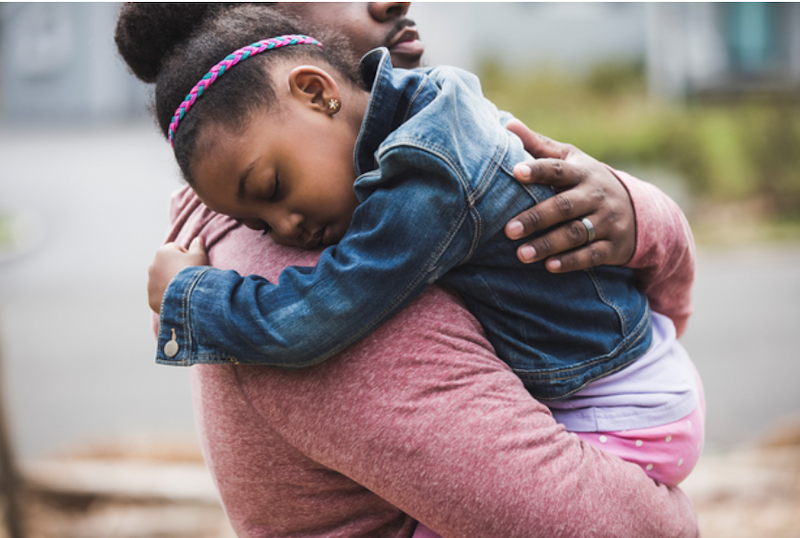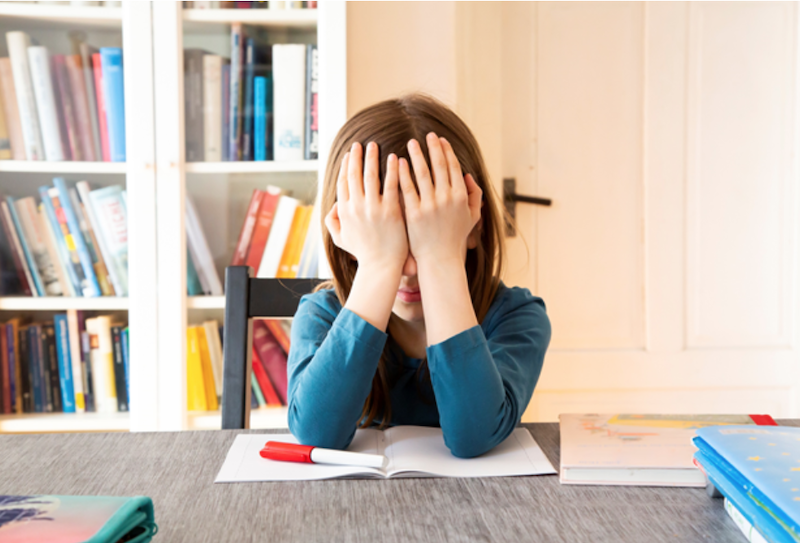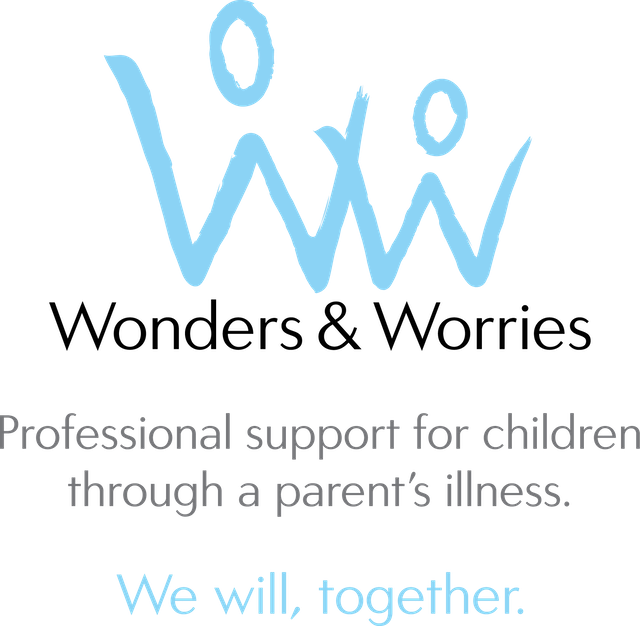
Coping skills develop over time to help manage difficult situations and feelings. For example, an infant may be calmed when held; a toddler when they are able to suck their thumb; a preschooler when they are given choices and control; a school-aged child when they feel a sense of mastery through playing games; and a teen when they are able to connect with their peers regularly. Through challenging situations, it may be taxing for children of any age (and especially younger children) to incorporate coping skills as they may not be aware of what works best for them or how capable they are.
Our experiences continue to shape how we adapt and react to disruptions over time. For example, when a dad was hospitalized for the first time, his 5-year-old son’s coping was challenged as he hadn’t been away from his dad for an extended period of time. He didn’t know that he could cope with his temporary absence. From that first experience, he learned that he would still be able to connect with his dad even while he was in the hospital, he would still have a routine (although somewhat altered), and he realized that he would still be able to play with his toys and be with his family. This experience will shape how he handles future hospitalizations and potentially, other challenges.

Emotional regulation is the process of being able to manage emotions and reactions with the demands of the situation. A child that is regulated can experience a range of emotions without being overwhelmed by these emotions.
Regulation skills include:
Awareness of where and how emotions feel in the body:
If a child is experiencing a parental illness, they may feel extreme sadness. They may have an uneasy feeling in the pit of their stomach. More often than not, they will be able to identify the cause of this physical feeling.
Attention given to emotions:
A regulated child will be able to identify how they are feeling, sad and worried, and come up with a plan to manage these feelings.
How do these feelings impact behavior?
A regulated child will be able to decide on their own, or with the help of a caregiver, what they can use to manage their feelings. Perhaps this is talking with a friend, drawing a picture, or taking a bike ride.

Emotional dysregulation is when the response to a feeling is out of control. The feelings in these situations impair everyday life and functioning. For example, a child who is dysregulated may experience extreme sadness related to their parent’s illness; this feeling will disrupt their ability to engage in life the way they used to (pre-illness). This out-of-control feeling may be expressed in different ways – anger or aggression, withdrawal from school and/or friends, etc. Children who are more frequently dysregulated will need extra support, especially in times of heightened stress.
Dysregulation is described below:
Unawareness of where and how emotions feel in the body:
If a child is experiencing a parental illness, they may feel extreme sadness. They may have an uneasy feeling in the pit of their stomach. When a child is dysregulated, they cannot identify a cause for this physical feeling.
Not able to give attention to emotions:
A child who is dysregulated will not be able to pinpoint how they are feeling and why they are feeling that way (e.g., sad and worried). Instead, these feelings may continue to domino and result in a state of being overwhelmed. The out-of-control feelings may be expressed in different ways.
How do these feelings impact behavior?
A dysregulated child will not be able to identify coping ideas to manage their feelings and will need the support of others to coach them through managing feelings. This typically takes great practice and trial and error before a flexible coping plan is established.
If we think about comparing emotional regulation to a teeter totter, a child who is more regulated will be able to keep the teeter totter nicely balanced. Alternatively, a child who has trouble regulating their emotions will tend to have one side of the teeter totter off kilter most of the time. There are tools and ideas to keep in mind when helping your child develop their regulation skills.

Helpful Strategies:
Managing the Environment
- Preparing children for what to expect each day can help decrease anxiety and the potential for emotional build up. To achieve this, maintain consistent boundaries and clear expectations. As well, keeping routines predictable creates a sense of safety and security:
- Depending on how old the child is, creating a daily schedule may be helpful detailing the important parts of the day (getting ready in the morning, meals, school information, and any appointments, etc.)
- Creating a weekly family calendar can help keep everyone on the same page.
- For transitions, providing warnings offers preparation for a child (5-minute warning before leaving for school, and if possible, a 2-day warning if a child’s pick-up routine from school changes).
Emotional Education
Help your child learn more about emotions through stories. For younger children, this may be reading, My Many-Colored Days (by Dr. Seuss), and for older children, this may be reading, Me and My Feelings: A Kids Guide to Understanding and Expressing Themselves (by Vanessa Green Allen).
Listening for Emotions
Attuned listening can help you label, acknowledge, and validate emotions your child may be expressing (verbally and otherwise). For example, you may say, “You seem______ right now – it’s okay to feel this way.” This is another way to help build your child’s understanding of different emotions. With validation, also emphasizing to your child that emotions are normal and temporary can be helpful.
Modeling Emotional Regulation
Children are keen observers and learn so much from parents and caregivers. Through talking about your feelings and how you coped with those feelings, your children realize that feelings are natural and there are ways to manage feelings. Share examples from your life, whether it was a conflict you had during the day or a time where you were hard on yourself (e.g., I asked my co-worker if she had time to sit down and talk about the problem), coping strategies (e.g., I ate lunch outside for some fresh air), and positive self-talk (e.g., I gave myself a pat on the back because it can be hard to ask someone to work through a problem).
Role Play to Practice Coping Skills
Having a parent work through ideas to problem solve challenging situations can be helpful. This could be working through typical life stressors (e.g., a child feeling left out from a group of friends, bullying situation, etc.) or stressors about having a parent who is ill (e.g., just hearing the news that mom will need more treatment, there has been a relapse or change in medical situation, etc.).
For example:
- To role play the bullying scenario, have your child pretend to be the bully and you be the child. This will open the door for you to better understand the situation and emotions that may have surfaced.
- Next, you’ll want to flip roles where you are the bully, and your child plays out how they wish they reacted. This can help your child further process and re-write the story with a more positive narrative.
Praise Efforts
When you observe your child reacting in a more controlled way or using coping skills to help regulate, provide specific praise for these actions. Through providing specific praise, this will help provide opportunities for empowerment and mastery, further encouraging use of these skills. As well, occasionally reflecting on times when they were able to regulate themselves can be helpful as well and create fresh reminders for any future challenges. For example:
- “Jack, I’m so proud of you. I know you’ve been sad, but you are still doing your work. It’s hard to do both.”
- “Emma, I know it was frustrating when your sister took your toy; I noticed how you were able to take a break and write her a message sharing your feelings – that was great. You were able to stay in control rather than out of control and that takes hard work sometimes – nice job.”
Activities to support regulation:
- Mindfulness activities
- Journaling
- Developing a coping menu or “My Coping Toolbox.”
Video: Connecting with a child to better understand how their experience:
Developing emotional regulation skills is a lifelong process. When children are experiencing change and loss (i.e., the loss of how life was before an illness, etc.), this can be very stressful. Helping children learn more about emotions and how to handle a wide range of feelings can help them cope and thrive despite the challenges they are going through. With tools and support that match a child’s unique needs, they can grow and learn so much as they overcome obstacles.
We are continually here to support you as you navigate the best plan for including your children throughout this medical situation. To connect with a child life specialist, please contact the Wonders & Worries Helpline at 1-844-WE-WONDER or [email protected].
